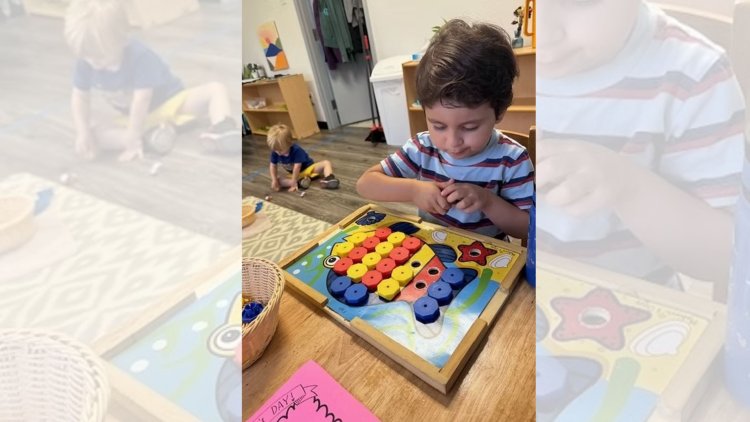Give Your Little One a Head Start: Why Toddler School Matters
Share this Post to earn Money ( Upto ₹100 per 1000 Views )

There’s something special about watching a child light up when they learn something new. Whether it’s saying a new word, stacking blocks higher than ever, or singing a song all the way through—those early milestones are magic. But did you know that toddler school can make a big difference in how quickly and confidently your child hits those milestones?
Let’s break it down and see why sending your little one to school early is more than just a way to keep them busy during the day. It’s a chance to give them a solid foundation for a lifetime of learning.
Building Social Skills Early
Kids aren’t born knowing how to take turns or play nicely. They learn that through experience—and lots of it. Toddler school provides a safe, guided environment where little ones can begin to understand how to share, express their feelings, and work through conflicts.
Instead of figuring this all out at home or on occasional playdates, toddlers in a structured setting get consistent opportunities to interact with others. That kind of daily social practice helps build empathy, patience, and confidence—traits that carry over into elementary school and beyond.
Routines That Foster Independence
Let’s be real—toddlers can be a handful. But that’s partly because they’re learning how to do things on their own. Toddler school introduces them to simple routines like putting away toys, washing hands, or following group instructions. Over time, those little habits turn into big wins for independence.
Having a regular schedule helps kids feel secure. They know what to expect, which helps reduce anxiety and boosts their confidence. It also makes transitions—like starting preschool or kindergarten—a lot smoother.
Encouraging Early Language and Brain Development
You’ve probably heard that the first few years of life are when the brain is developing the fastest. That’s not just a catchy line—it’s science. During this time, exposure to language, music, stories, and problem-solving activities shapes how the brain builds connections.
At a good toddler school, teachers engage kids with age-appropriate learning through play. That might mean singing rhyming songs, asking open-ended questions during story time, or encouraging group games that involve following directions. These activities aren’t just fun—they’re helping wire the brain for learning.
Physical Play Supports Learning Too
Don’t underestimate the power of playtime. Climbing, jumping, and running around isn’t just about burning off energy—it’s a crucial part of development. Gross motor play helps kids gain balance, coordination, and strength, while fine motor activities (like stacking blocks or drawing) build the control they’ll need for things like writing and tying shoes.
Many toddler programs make physical activity a key part of the day. That’s a win-win—it keeps kids active while supporting the mental and physical skills they’ll use for years to come.
Toddler School Helps Parents, Too
Let’s face it: parenting is a full-time job, and sometimes you just need a break. Enrolling your child in toddler school gives you a few hours to breathe, work, or tackle that never-ending to-do list. And while you’re getting things done, your child is learning, growing, and having a blast.
Plus, toddler programs often keep parents in the loop with progress updates and tips for supporting learning at home. It creates a team approach to your child’s growth, and that kind of support makes a real difference.
A Head Start That Matters
Toddler school isn’t about pushing kids to grow up too fast. It’s about creating a space where they can explore, ask questions, and build confidence. It’s giving them a strong start in a world that asks a lot from them early on.
So if you’re thinking about enrolling your child, trust your gut—it might just be one of the best decisions you make for their future. A little structure, a lot of play, and a caring team can go a long way in shaping a happy, curious, and capable learner.














